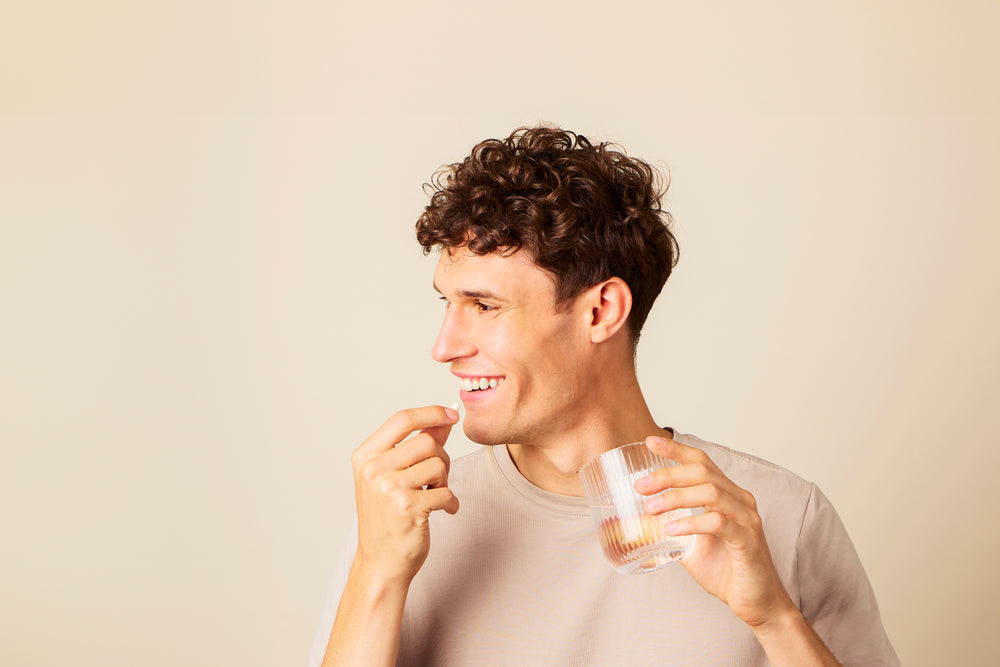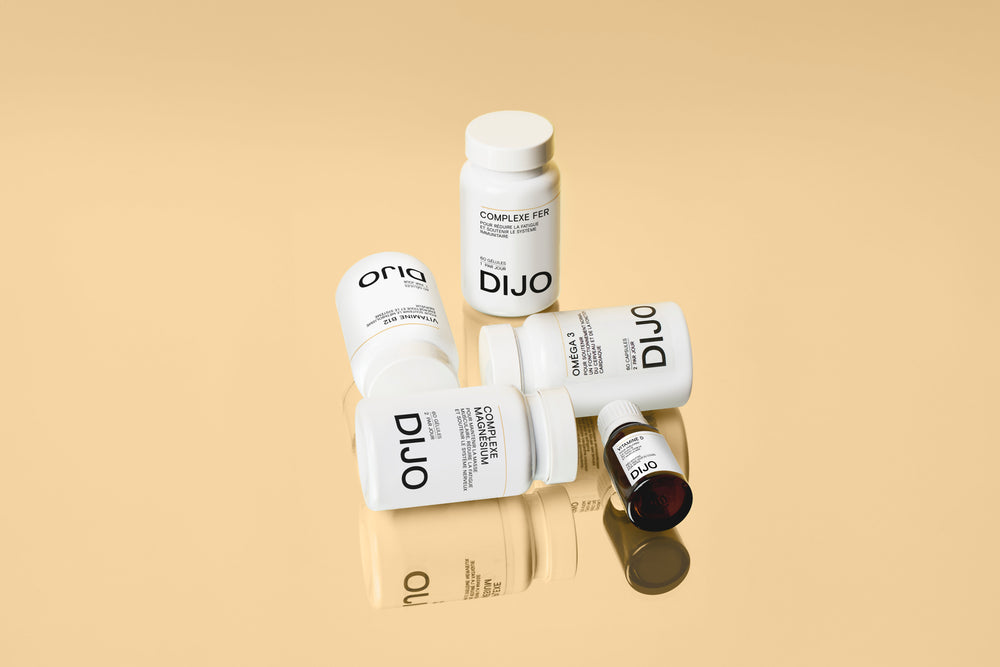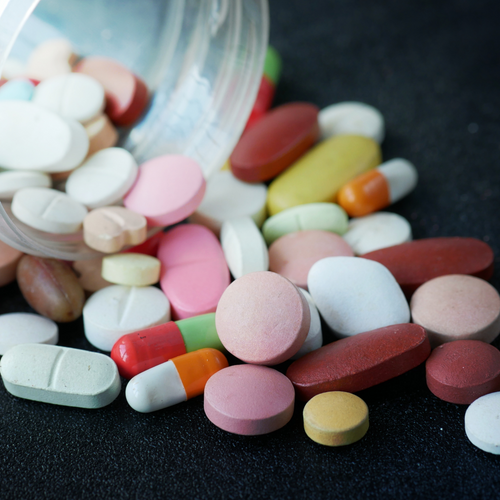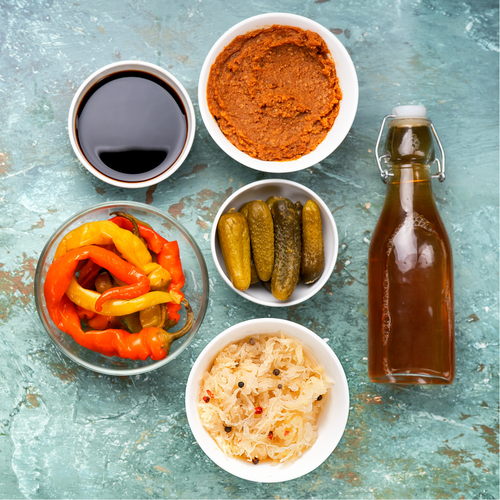What to remember:
- Carbohydrates are one of the main macronutrients in our body, and represent the primary source of energy.
- There are two families of carbohydrates: simple carbohydrates (quickly digested and absorbed) and complex carbohydrates (take longer to be absorbed)
- Carbohydrates are essential to support physical effort and replenish muscle glycogen stores.
- Carbohydrates should represent 40 to 55% of daily energy intake, or 200 to 250g for women and 250 to 300g for men.
- Carbohydrate-rich foods that are ideal for exercise are whole-wheat pasta, brown rice, sweet potatoes, oatmeal, dried fruit, whole-wheat bread, bananas, quinoa, legumes, and potatoes.
What are carbohydrates?
Carbohydrates , also called carbohydrates , are one of the three main categories of macronutrients, along with proteins and lipids, which are essential for the proper functioning of our bodies. They play a key role in providing energy, particularly for muscles and the brain. Carbohydrates are mainly found in plant-based foods such as grains, fruits, vegetables, and legumes.
The different types of carbohydrates
There are two main categories of carbohydrates , distinguished by their chemical structure and rate of absorption in the body:
Simple carbohydrates:
These are sugars , such as glucose, fructose (found in fruits), sucrose (table sugar), and lactose (milk sugar). These carbohydrates are quickly digested and absorbed by the body, resulting in a rapid surge of energy in the blood.
Complex carbohydrates:
Also called starches, they are made up of longer chains of glucose molecules . They are found in foods such as whole grains, potatoes, legumes, and rice. They are digested more slowly, allowing for a gradual release of energy into the body. This helps maintain a stable energy level over a longer period of time.
The role of carbohydrates in the body:
During digestion, carbohydrates are broken down into glucose , a sugar molecule that our bodies use for energy. Glucose is essential for fueling our cells, especially those in the brain and muscles. Depending on the body's energy needs, glucose is either used immediately or stored as glycogen in the muscles and liver for later use.
Carbohydrates are therefore essential for maintaining optimal physical and mental performance. Their importance is even greater in sports, where physical exertion requires increased consumption of these nutrients to support muscles.
What are their advantages in sports?
Carbohydrates are the main source of energy for muscles during sports activity. They allow:
- To increase physical performance and endurance.
- To delay muscle fatigue.
- To improve recovery after training by replenishing glycogen stores.
For athletes, sufficient carbohydrate consumption is crucial, especially before and after exercise.
How many carbohydrates should I consume per day?
Carbohydrates should make up about ⅓ of your plate, adjusting this according to your hunger, of course. This represents 200 to 250g for women in total over the day, and 250 to 300g for men.
10 Carbohydrate-Rich Foods for Sports:
Wholemeal pasta
Whole-wheat pasta is an excellent source of complex carbohydrates. It provides sustained energy and also contains fiber, which helps stabilize blood sugar levels. Ideal before a workout for long-lasting fuel.
Carbohydrate content per 100g: 23.4g
Brown rice
Brown rice is rich in carbohydrates and fiber, making it ideal for maintaining steady energy levels during prolonged physical activity. It also contains B vitamins that help convert carbohydrates into energy.
Carbohydrate content per 100g: 32.6g
Sweet potato
Rich in complex carbohydrates, sweet potatoes are also an excellent source of vitamin A and potassium, essential for muscle function.
Carbohydrate content per 100g: 12.2g
Oat flakes
Oats are a popular food among athletes. Not only are they rich in carbohydrates, but they're also high in soluble fiber, which allows for a gradual release of energy, perfect for a long workout.
Carbohydrate content per 100g: 57.9g
Dried fruits (raisins, apricots, dates)
Dried fruits are excellent sources of simple carbohydrates that are quickly absorbed by the body. They are perfect for a quick snack before or during intense exercise.
Carbohydrate content per 100g: 51.1g
Wholemeal bread
Whole-wheat bread provides a good source of complex carbohydrates, with fiber that promotes a gradual release of energy. It's perfect for a meal before physical activity.
Carbohydrate content per 100g: 44.3g
Bananas
Bananas are a favorite fruit among athletes for their high content of simple carbohydrates and potassium. They help prevent muscle cramps while providing a quick energy boost.
Carbohydrate content per 100g: 19.7g
Quinoa
Quinoa is an excellent source of carbohydrates, rich in protein and fiber. It is ideal for post-workout recovery, helping to restore energy and repair muscles.
Carbohydrate content per 100g: 27.9g
Legumes (lentils, chickpeas)
Legumes are a complete source of complex carbohydrates and fiber. They provide sustained energy and are rich in protein, making them an ideal choice for athletic diets.
Carbohydrate content per 100g: 16.2g
Potatoes
Potatoes are rich in complex carbohydrates. They are quickly absorbed by the body, providing instant fuel for athletic activities.
Carbohydrate content per 100g: 18.5g
Carbohydrates before exercise
Consuming carbohydrates before physical activity provides sustained energy for the muscles. It is recommended to favor complex carbohydrates , such as whole-wheat bread or whole-wheat pasta, approximately 2 to 3 hours before exercise to maximize glycogen stores.
- Examples of foods: a plate of brown rice, a slice of whole-wheat bread with a little almond butter.
- Tip: If you have a short time before exercise (less than an hour), opt for simple carbohydrates like a banana or dried fruit, which are digested quickly and provide an immediate energy boost.
Carbohydrates during sport
During prolonged exercise (over 90 minutes), it is essential to maintain a carbohydrate intake to avoid depletion of energy reserves and delay fatigue. Simple carbohydrates are ideal for rapid absorption.
- Examples of foods: a handful of raisins, fruit paste, or a homemade energy drink made with syrup and salt.
- Tip: Regular consumption of 30 to 60 g of carbohydrates per hour is recommended for intense efforts.
Carbohydrates after exercise
After exercise, carbohydrates play a key role in muscle recovery , replenishing glycogen stores and promoting muscle fiber repair. Combine them with a protein source to optimize this phase.
- Examples of foods: a sweet potato with chicken, a smoothie made with oatmeal and plant-based milk, or quinoa with vegetables.
- Tip: Consume carbohydrates within 30 minutes of training to maximize their absorption and promote rapid recovery.
Which DIJO supplements should you take to increase your athletic performance?
At DIJO, we have developed a Sports Pack that includes the essentials for people who regularly practice sports:
- The Essential , to limit inflammation and promote the absorption of nutrients,
- Glutamine , to strengthen the intestinal wall and promote good muscle recovery,
- Magnesium , to fight fatigue and reduce oxidative stress.
This trio supports digestion for greater comfort during and after exercise, and allows for better nutrient absorption. It also promotes the repair of muscle fibers weakened during exercise. All this while ensuring a daily energy boost!
Source :
[1] Anses, CIQUAL, Table of nutritional composition of foods
[2] Jeukendrup A, (2014, may) A step towards personalized sports nutrition: carbohydrate intake during exercise, DOI: 10.1007/s40279-014-0148-z
[3] Burke M, Hawley J, Wong S, et al. Carbohydrates for training and competition, DOI: 10.1080/02640414.2011.585473
[4] Hearris M, Hammond K, Fell M, (2018, march) Regulation of Muscle Glycogen Metabolism during Exercise: Implications for Endurance Performance and Training Adaptations, doi: 10.3390/nu10030298.






















